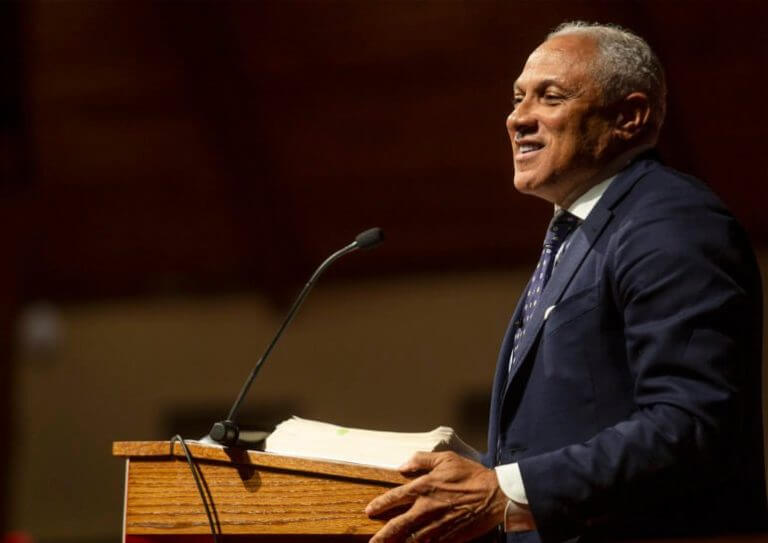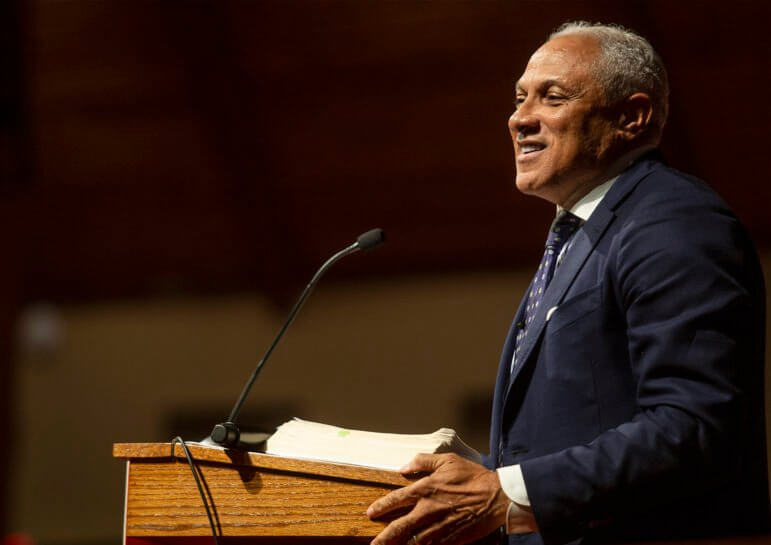

Mike Espy’s wholehearted embrace of Obama’s endorsement this week shreds any theory that he is abandoning the state’s Democratic voting base.
When former President Barack Obama recently endorsed Mike Espy’s Senate bid, the Espy campaign didn’t just welcome it — they blasted it on their social media channels and vowed to air it on African American radio stations across the state.
The response illustrates just how different a campaign Espy is running this year than past statewide Democratic candidates.
“I am honored to have the endorsement of the 44th president of the United States of America,” Espy said in a statement soon after the endorsement. “President Barack Obama governed with dignity and effectiveness. He is remembered and will continue to be remembered as a very good president.”
Just last year, the gubernatorial campaign of Democrat Jim Hood worked hard to keep secret a recorded phone call to about 280,000 selected households in which the nation’s first African American president urged people to vote for Hood.
The Hood campaign, which strategically rolled out the Obama robocall the day before the election, did not want all Mississippians to know of the endorsement.
It wasn’t that Hood dislikes Obama or was ashamed of his support. The Hood campaign, like many other statewide Democrats in the past, concluded that being tied to national members of their party negatively impacted their chances of winning in majority-Republican Mississippi.
Michael Rejebian, a Jackson-based political consultant who was a key member of the Hood campaign, said working simultaneously to enthuse the base of the Mississippi Democratic Party — overwhelmingly made up of Black voters — and to attract moderate white voters they believed they needed to win was like trying to “thread a needle.”
“We were threading that needle every single day, every decision we made,” Rejebian said on Mississippi Today’s The Other Side podcast shortly after the 2019 election. “We knew at the beginning of this campaign that our base was not enough to win. We had to have moderate white voters, and to do that you have to do certain things. You have to appeal to them in certain ways you might not appeal to base voters… At the end of the day, we could not get that needle through that hole.”
Rejebian continued: “There are some good people out there who wanted to work with us and wanted to do great things in Mississippi. It was hard for us to say no, we have to run our own race here because if we don’t they are going to take that and bash us over the head with it every single day.”
Espy indicated early on that he would not run from national Democrats nor many of their progressive ideas. The plan was to try to attract new voters who often had not voted in past elections because they believed Mississippi Democratic candidates were too conservative.
A few weeks ago, various people on the left and right theorized that Espy was abandoning that strategy when he aired a television commercial that highlighted how he crossed party lines to work with Republican President Ronald Reagan and Sen. Thad Cochran when he served as the state’s first African American congressman in the modern era.
Espy’s wholehearted embrace of Obama this week shreds that theory.
Espy never said he would agree with Barack Obama, Joe Biden or Kamala Harris on every issue, but he has made it clear that they are Democrats whom he supports.
Still, he repeats the refrain: “I will be an independent voice in the Senate — whatever is best for Mississippi.”
Whether Espy’s embrace of the national Democratic Party in his contest with Republican incumbent Sen. Cindy Hyde-Smith is a winning recipe remains to be seen. Hyde-Smith is still the clear favorite.
But Espy has something no other statewide Democrat has had in recent elections: a 3-to-1 cash advantage. Still, many believe there is no way Hyde-Smith can lose because people who come to the polls to vote for President Donald Trump, who is still popular in the state, will not vote for Espy. It is reasonable to assume that there will not be many who vote for both Trump and Espy.
But one caveat that could give Espy a glimmer of hope is that in 2008, 44,000 more people voted for Republican presidential nominee John McCain than voted for Republican Roger Wicker, who was challenged for a vacant U.S. Senate seat by former Democratic Gov. Ronnie Musgrove. Overall, about 46,500 fewer people voted in the Senate election than in the presidential.
In the 2018 special election to replace long-time Sen. Cochran, Hyde-Smith defeated Espy by almost 66,000 votes. If there are enough people — ardent Trump supporters — who come to the polls to solely vote for him and skip voting in the Senate race, the 2020 U.S. Senate election could be surprisingly close.
The question, then, might become whether Espy’s strategy of seeking out the support of national Democrats was a good one.
The post Espy hasn’t changed his strategy of reaching Mississippi voters. It’s just nuanced. appeared first on Mississippi Today.
- School choice, not teacher pay, has been Tate Reeves’ priority for 2026 Mississippi Legislature - February 15, 2026
- Scientists: Genetic analysis could speed restoration of American chestnut trees, from Maine to Mississippi - February 14, 2026
- NAACP threatens to sue Elon Musk’s xAI over pollution in Mississippi - February 13, 2026